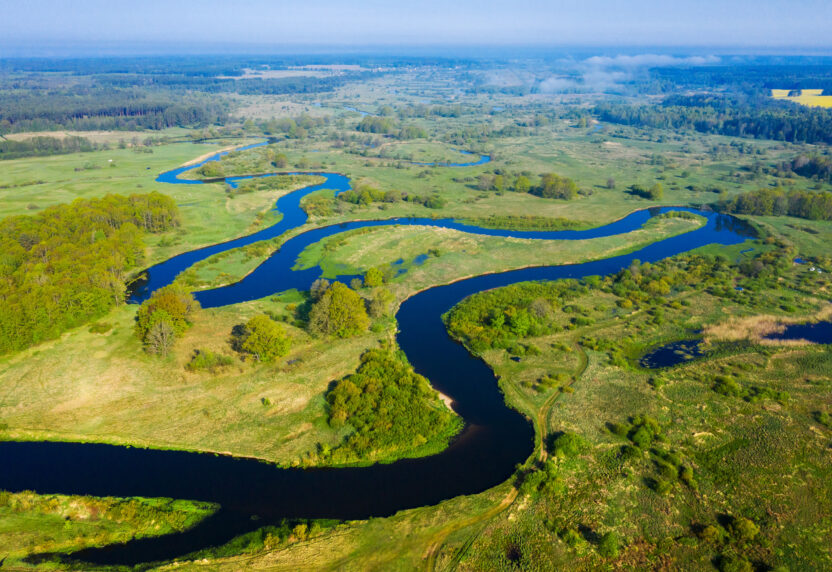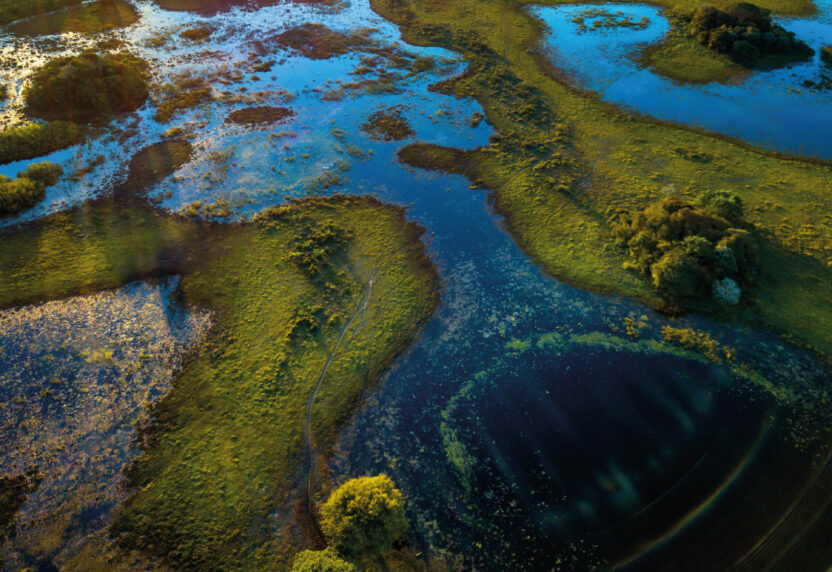
Biodiversity
-
Biodiversity
Wetlands are some of the most productive engines of the planet’s biodiversity. An estimated 40 percent of the world’s biodiversity are found in wetlands – from inland lakes, swamps and river floodplains to coastal mangroves, coral reefs, tidal mudflats and salt marshes. In fact, more than a million threatened species of plants and animals depend on wetlands for their survival.
Located in South America, the giant Pantanal wetland is an ecological melting pot full of caiman, giant anteaters, capybaras, jaguars, giant otters and maned wolves. In fact, the Pantanal boasts the highest concentration of wildlife on the continent.
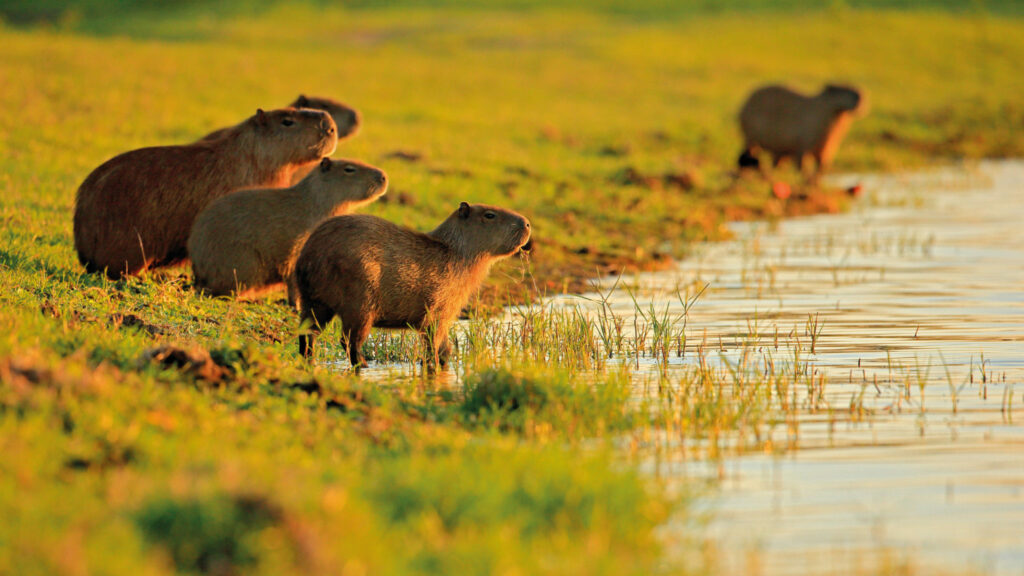
The Congo basin in Africa contains at its heart the world’s largest tropic peat swamp, home to unrivalled populations of gorillas and forest elephants. The swampy waters of the Sudd on the Nile and the Okavango wetland in southern Africa are green refuges for wildlife like cheetahs and rhinoceroses. The mangroves in Rufiji, Tanzania, are home to fish, migratory water birds, sea turtles crabs and shrimp.
Wetlands are also critical connecting ecosystems, linking different habitats and facilitating the movement of species. Hundreds of millions of migrating birds rely on a network of thousands wetlands to feed and rest along their intercontinental flyways. Over 1,000 migratory fish species rely on swimways – rivers and their associated ecosystems.
But while much is known, the ecological wealth of many wetlands are still being uncovered. Some 200 new species are discovered in freshwater wetlands alone each year.
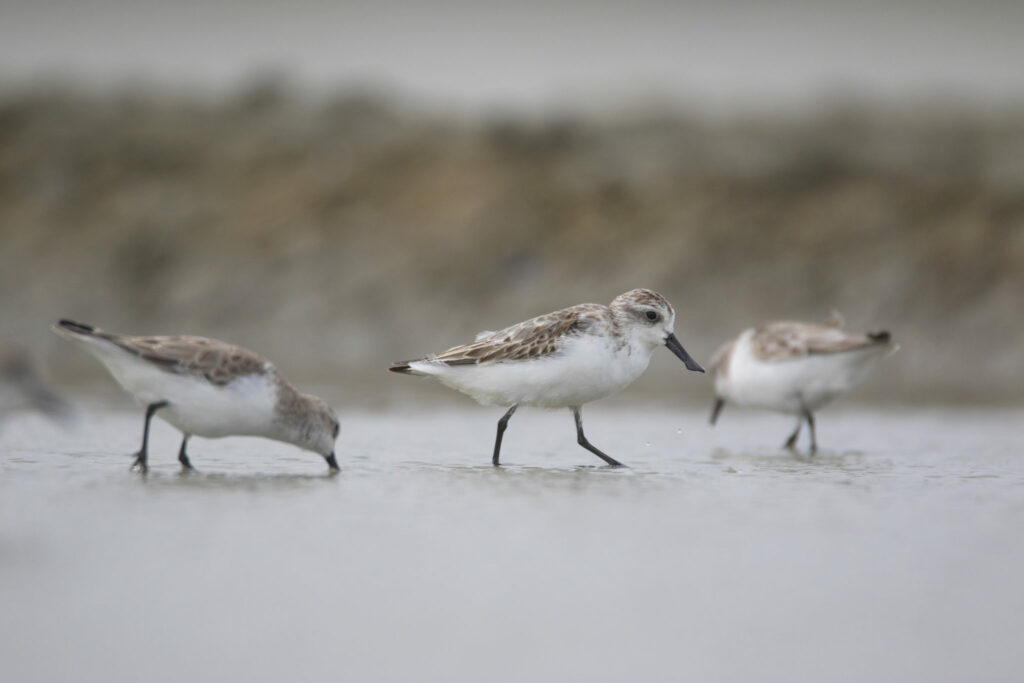
Unfortunately, wetlands have been facing growing threats and are being lost three times faster than forests. Over the past 50 years, more than one-third of the world’s wetlands have been lost due to pollution, infill for building and agriculture, invasive species and climate change.
Simultaneously, one million plant and animal species are threatened with extinction (including nearly all listed species of migratory fish)worldwide. Freshwater species populations have suffered a devastating 83% collapse since 1970.
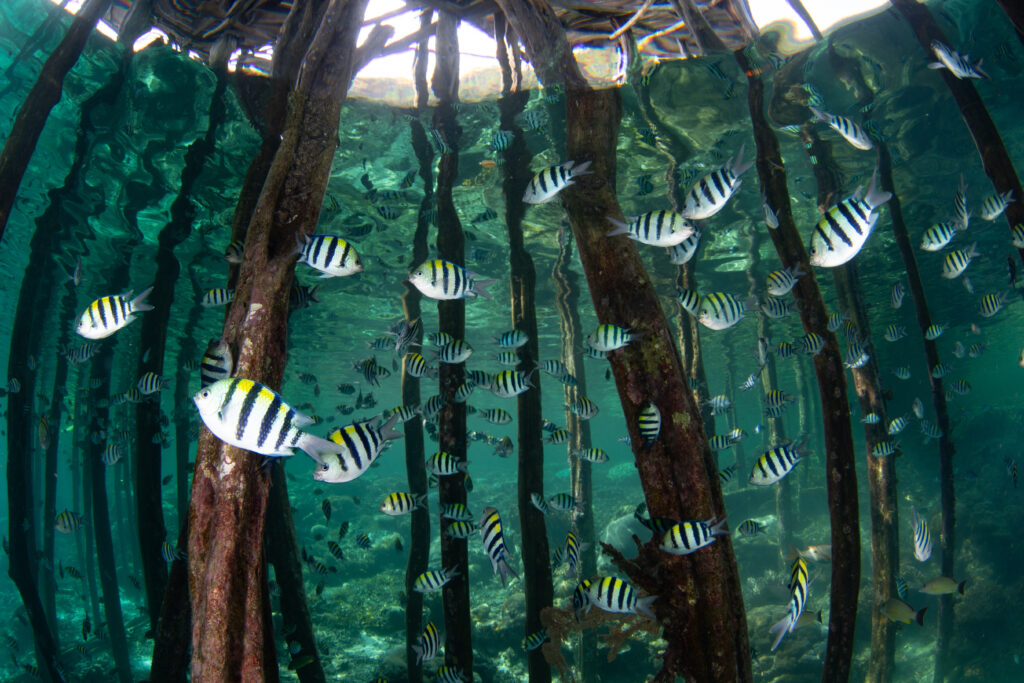
Wetlands International works globally to conserve and restore wetlands. This includes promoting sustainable development and ecotourism in the Pantanal, providing tools and knowledge for effective mangrove restoration across Africa, enabling inclusive water management practices through projects like BLiSS, combining nature-based and engineering solutions in Asia, and promoting more responsible lithium mining practices in the High Andes.
The Kunming-Montreal Global Biodiversity Framework (KM-GBF) was adopted by 192 countries at CBD COP15 in December 2022, to halt and reverse biodiversity loss by 2030. Wetlands are explicitly included in Target 2 on restoration, and Target 3 on protected areas (the “30×30 target”) through wording on inland water, and coastal and marine ecosystems. The KM-GBF provides a powerful new global opportunity for the rapid upscaling of wetland conservation, restoration and wise use in all countries, and for cross-government, society-wide approaches.
The Sixteenth meeting of the Conference of the Parties to the Convention on Biological Diversity (CBD COP 16) will be held in Cali, Colombia from 21 October – 1 November 2024. Wetlands International will be participating to secure the essential inclusion of ambitious wetland targets and policies in National Biodiversity Strategies and Action Plans (NBSAPs).



